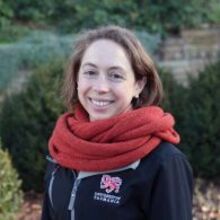Living With Fire
Discover the fascinating science behind wildfire and learn how to live safely and sustainability with fire today.
| Course Price | Free |
| Delivery | Online |
| Learning Hours | Estimated 4.5 hours per week over 4-weeks. |
| Access to Course | 4-weeks from registration to complete this course |
As the world warms, wildfires are behaving in new, less predictable ways, which present fundamental challenges to our established methods of preventing, fighting and living with fire. And with increasing populations on the wildland-urban interface, we urgently need to find new solutions to these challenges.
This free taster course will introduce you to some of the key aspects of co-existing with fire. You’ll learn about the science of fire and the role it plays in sustainability, examine the history of Indigenous burning and how it’s shaped our country, and discover how we can benefit from fire from a bio-diversity aspect, whilst protecting ourselves from it. This is your opportunity to learn how to safely live with fire as individuals and as communities, whilst learning new ways to plan for the future.
How you will learn
This course is fully online and self-paced. From the moment you register, you will have 4 weeks to complete this course. It is estimated that you will spend 4.5 hours per week learning, which will consist of online learning, reading resources and short videos to help guide your knowledge. There are no formal assessments and upon course completion, you will receive a Certificate of Attendance.
Who should do this course?
The course is designed for anyone who wishes to understand more about the complex but fascinating aspects of living with fire today.
Gain an understanding of the scientific, social, economic and ethical issues of co-existing with wildfire.
Explore the role of indigenous burning in shaping Australia, and how we can learn from this to live with fire sustainably today.
Learn about the the role of wildfire in the earth system, including how it affects biodiversity
Examine the role of fire in human history and culture, including how our response to fire has changed over the years.
Discover the impact that climate change is having on wildfire activity.
